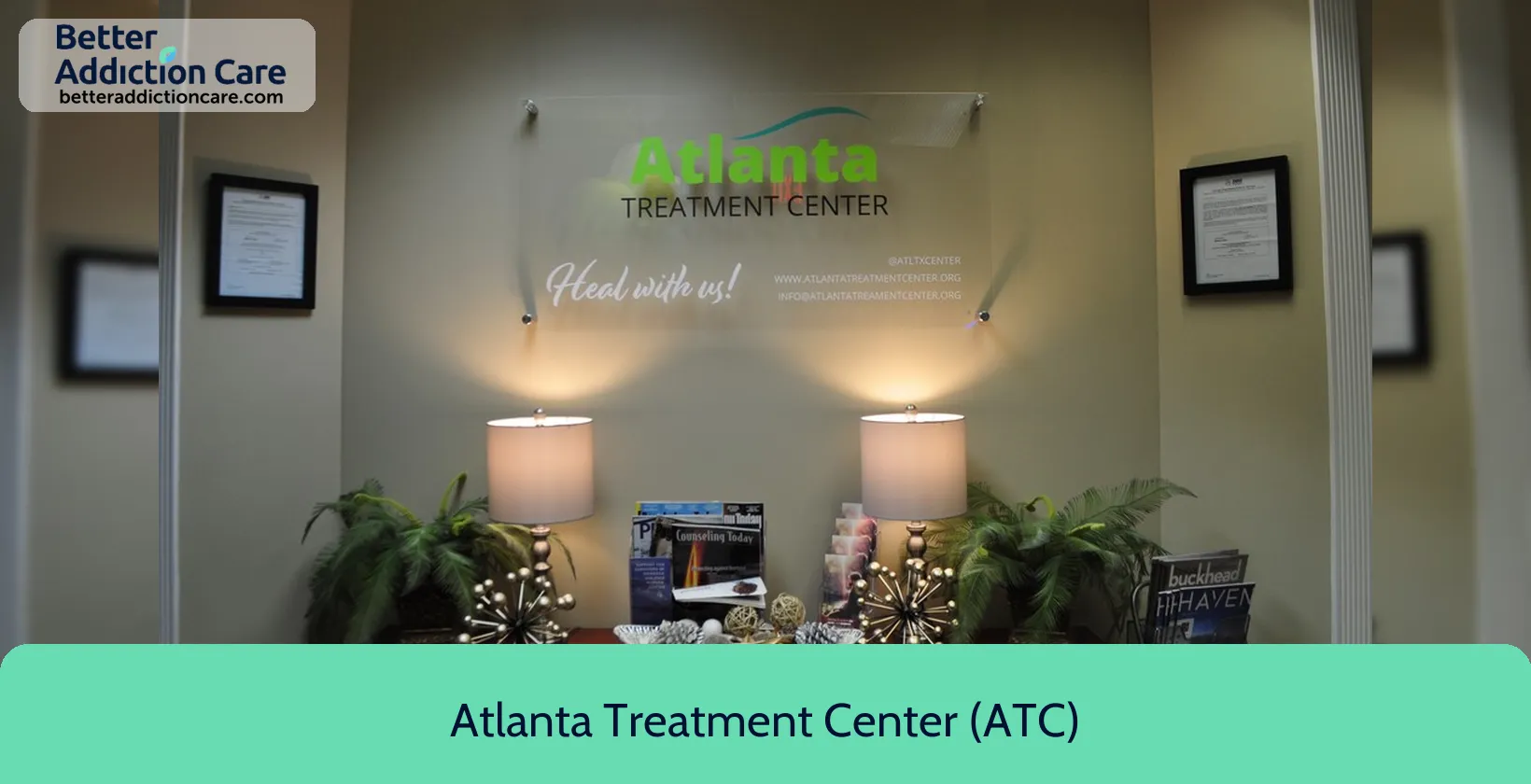Overview
Atlanta Treatment Center (ATC) is a substance abuse treatment center for people seeking treatment near Cobb County. As part of their treatment modalities for recovery, Atlanta Treatment Center (ATC) provides individual psychotherapy, couples/family therapy, and cognitive behavioral therapy during treatment. Atlanta Treatment Center (ATC) is located in Atlanta, Georgia, accepting cash or self-payment for treatment.
Atlanta Treatment Center (ATC) at a Glance
Payment Options
- Cash or self-payment
- Sliding fee scale (fee is based on income and other factors)
- Payment assistance (check with facility for details)
Assessments
- Screening for tobacco use
- Comprehensive mental health assessment
- Comprehensive substance use assessment
- Screening for mental disorders
- Screening for substance use
Age Groups
- Children/adolescents
- Young adults
- Adults
- Seniors
Ancillary Services
- Court-ordered outpatient treatment
- Education services
- Family psychoeducation
- Suicide prevention services
- Specially designed program for DUI/DWI clients
Highlights About Atlanta Treatment Center (ATC)
6.92/10
With an overall rating of 6.92/10, this facility has following balanced range of services. Alcohol Rehabilitation: 8.00/10, Drug Rehab and Detox: 6.00/10, Insurance and Payments: 6.00/10, Treatment Options: 7.70/10.-
Alcohol Rehabilitation 8.00
-
Treatment Options 7.70
-
Drug Rehab and Detox 6.00
-
Insurance and Payments 6.00
Treatment At Atlanta Treatment Center (ATC)
Treatment Conditions
- Mental health treatment
- Alcoholism
- Substance use treatment
- Co-occurring Disorders
Care Levels
- Outpatient
- Intensive outpatient treatment
- Aftercare
Treatment Modalities
- Individual psychotherapy
- Couples/family therapy
- Cognitive behavioral therapy
- Integrated Mental and Substance Use Disorder treatment
- Telemedicine/telehealth therapy
Ancillary Services
Languages
- Spanish
- Other languages (excluding Spanish)
- French
Additional Services
- Pharmacotherapies administered during treatment
- Discharge Planning
- Drug or alcohol urine screening
Special Programs
- Veterans
- Clients who have experienced intimate partner violence, domestic violence
- Clients who have experienced trauma
Get Help Now
Common Questions About Atlanta Treatment Center (ATC)
Contact Information
Other Facilities in Atlanta

6.74

6.92

6.62

7.00

6.75

6.65

6.71

6.89
DISCLAIMER: The facility name, logo and brand are the property and registered trademarks of Northside Hospital Behavioral Health Services 6105 Peachtree Dunwoody Road, and are being used for identification and informational purposes only. Use of these names, logos and brands shall not imply endorsement. BetterAddictionCare.com is not affiliated with or sponsored by Northside Hospital Behavioral Health Services 6105 Peachtree Dunwoody Road.

